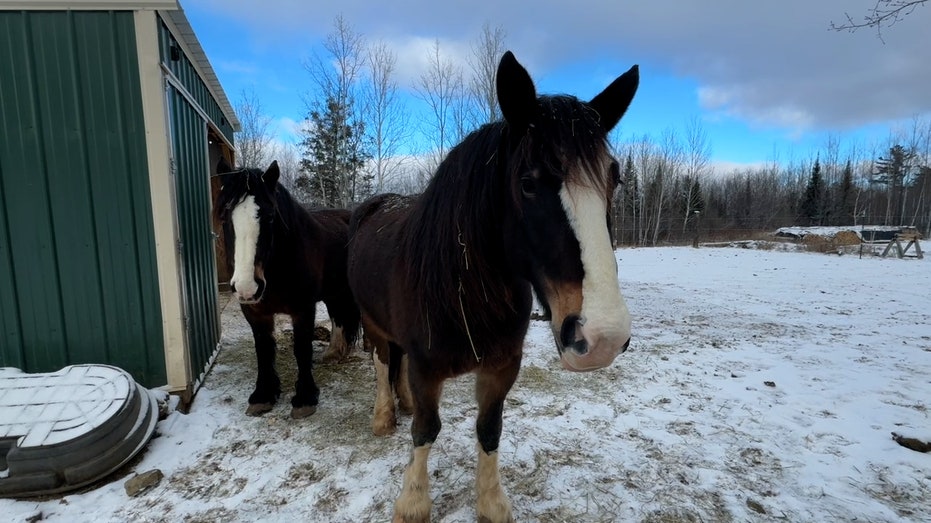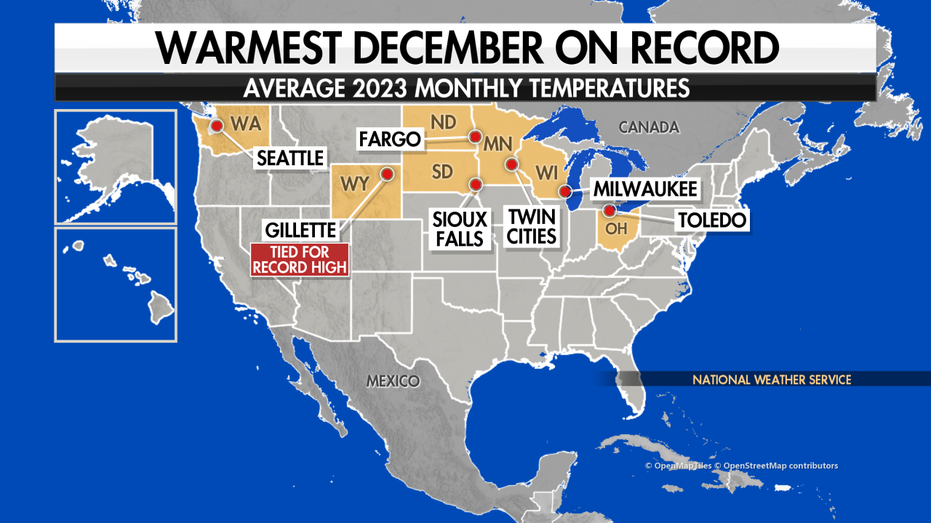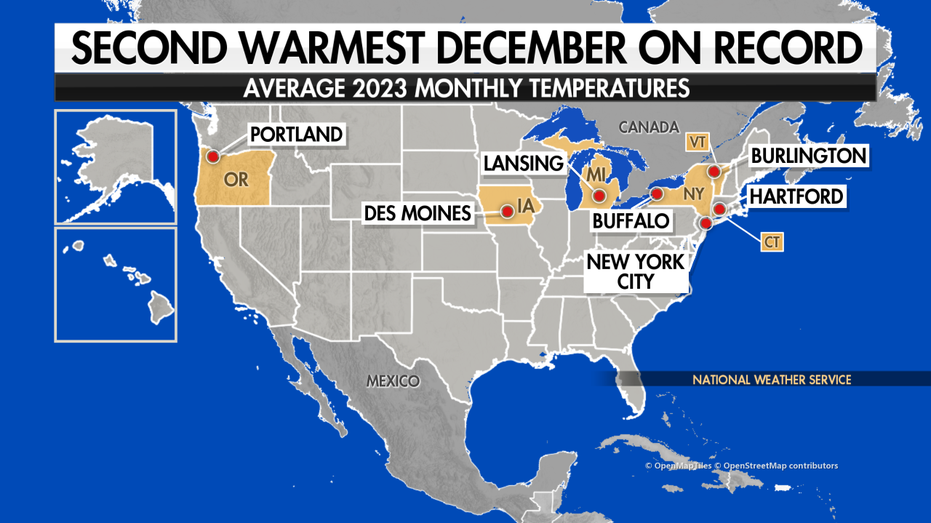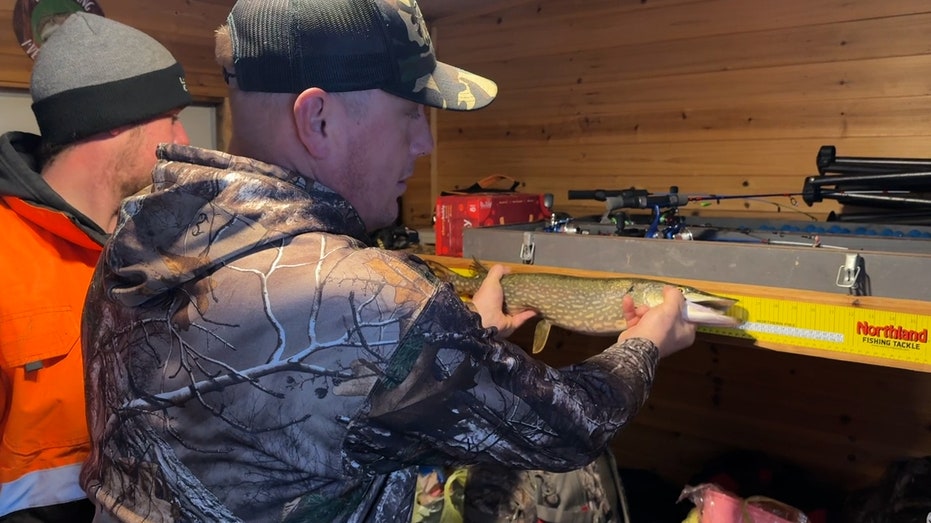Many U.S. states rely on winter tourism, but with record-breaking, warmer winter temperatures, some businesses are losing money.
The winter tourism industry in the U.S. typically brings in billions of dollars for the economy, but businesses in many cities across the country are struggling because of record-breaking warm temperatures.
In Longville, Minnesota, Tara Mueller drives a mile from shore using the Lake Leech Ice Road. She rented an ice fishing shelter from the Leech Lake Ice Road at Chippewa Lodge with her friend and boyfriend. It’s their first time ice fishing this year.
“He and I spend most of the winters ice fishing,” Mueller said. “This is probably the latest in the season that we’ve actually gotten to go on the ice.”
Mike Peterson runs the Leech Lake Ice Road. Though the access point isn’t open for public vehicle traffic yet because of low ice levels, Peterson is still able to rent out one of four, four-person sleeper houses.
2023 FINISHES AS WARMEST YEAR ON RECORD
Minnesotan Jake Petrowitz measures his fish on Leech Lake after an ice fishing trip with a group of friends in celebration of their birthdays. (Mills Hayes/Fox News / Fox News)
“Our fish houses are a lot lighter than most of the manufactured ones nowadays. So, we’re able to get them on a little bit thinner ice than normal,” Peterson said. “This time of year should be a heck of a lot more busy than it is.”
Last year, 400 to 500 people used the ice road over New Year’s weekend. This year? Zero.
Chippewa Lodge Owner Josh May said it’s a loss of tens of thousands of dollars for their business. With less anglers on the lake, most businesses that survive on tourism have been severely impacted.
“It’s not just us that are suffering, it’s the grocery stores, it’s the liquor stores, the bars, restaurants,” May said of businesses in Longville, which has a population of less than 200.
A few hours north on the U.S.-Canadian border, Gunflint Lodge was finally able to open skating up to the public last week, but their cross-country skiing and snowmobile trails are still closed for visitors because there isn’t enough snow.
‘SELFLESS’ MINNESOTA DEPUTY CRAWLS ACROSS THIN ICE TO RESCUE FISHERMEN, DOG: VIDEO

At Gunflint Lodge in Grand Marais, Minnesota, horses Hannah and Heather wait for snow. They haven’t been able to give sleigh rides this season because of the unusual lack of snow. (Mills Hayes/Fox News / Fox News)
Guests can take a horse-drawn carriage around the property, but the Clydesdale horses sit waiting for more wintry weather. The sleigh needs about two feet of snow to make it through the mountainous terrain.
Owners John and Mindy Frederickson said they are hoping for more snow as soon as possible, but they’re adapting.
“The resorts up here are pivoting from cross country skiing and snowmobiling and focusing on skating and clearing paths on the ice for skating and kind of using what we do have,” John said. “The families are really resilient and will adjust to whatever we got.”

Seattle, Minneapolis and Milwaukee are just some of the major metropolitan areas that broke records for the highest average December temperatures in 2023. (Mills Hayes/Fox News / Fox News)
Because of warmer temperatures, vacationers have been able to hit the hiking trails – something they have not been able to do during this time of year in the past.
“I’m sure that there’s some people that are being a little bit more cautious and you know, don’t want to plan their snowmobile trip or their ski trip until they know that there’s snow, but you know, it’ll come. There’s never been a [year] where it hasn’t snowed,” Mindy said.
This week, the historic John Beargrease Sled Dog Marathon in Minnesota was canceled for 2024 by organizers due to a lack of snow cover. Other tournaments and competitions involving snow or ice-related activities have been postponed across the country because of higher temperatures.
Dr. Stefan Liess, a researcher at the Department of Soil, Water and Climate at the University of Minnesota, said climate change and a powerful El Niño weather pattern this year are to blame for the warmer winter temperatures in the U.S, but even without El Niño, the planet is warming – which he described as a global phenomenon.
BIDEN SAYS COP28 REACHED ‘HISTORIC MILESTONE’ AFTER AL GORE DEEMS NEGOTIATIONS ON VERGE OF ‘COMPLETE FAILURE’
“We rely on tourism also and tourism relies on snow cover,” Liess said. “We still expect to have snow on the ground, so skiing will not easily go away in Minnesota. It will be just a shorter period of time where [it] might be available.”
Scientists can produce physical models that show snow cover based on greenhouse gas concentrations. Liess said some models show that we could see half of the amount of snow in 100 years because of climate change.

While these cities didn’t break records, they still saw higher than average temperatures in December. (Mills Hayes/Fox News / Fox News)
“One of the biggest uncertainties is actually our human behavior. How much more of those gases will be put into the air and that depends on also how the snow cover will look like,” Liess said.
GET FOX BUSINESS ON THE GO BY CLICKING HERE
Because of the lack of snow, it’s common for many ski resorts to use artificial snow, which Liess described as a short-term solution that can be more harmful to the planet.
Credit: Source link




